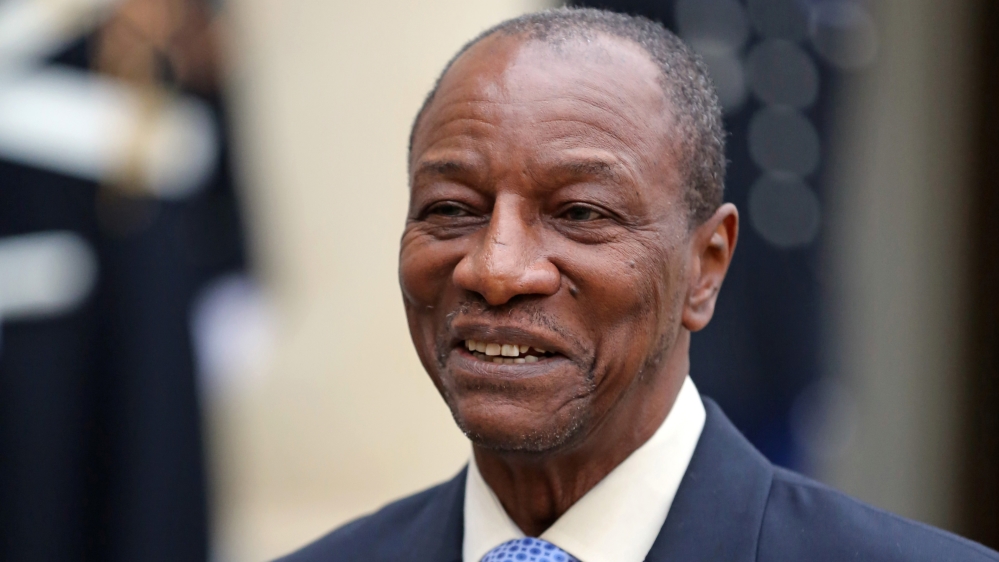Guinea court jails opposition leaders for organising protests
Opposition and civil society leaders given jail terms for organising rallies against possible removal of term limits.

A court in Guinea has handed down jail terms to five opposition and civil society leaders for organising protests against a possible change to the constitution that could let President Alpha Conde seek a third term.
Abdourahmane Sanoh, a former government minister and an organiser of last week’s unauthorised demonstrations, which resulted in at least nine deaths, received a one-year jail term for inciting civil disobedience.
Keep reading
list of 3 itemsIs another president attempting to cling to power in Guinea?
It’s time for the African Union to put a stop to ‘third-termism’
Four other members of the National Front for the Defence of the Constitution (FNDC), a coalition of politicians and activists opposed to a constitutional change, received six-month sentences by the court in the capital, Conakry. Three others were acquitted
The defendants were arrested in the days leading up to the protests.
The prosecution, which had been seeking five-year sentences, said it planned to appeal – as did the defence.
“Everything has been done to silence our clients for a long time because it has been decided they will be obstacles to [Conde’s] plan to seek a third term,” Mohamed Traore, one of the defendants’ lawyers, told reporters after the verdict was read.
Rights group Amnesty International criticised the court’s ruling, saying “no one should be detained for having organised or called for a peaceful demonstration.”
“The sentencing of leaders of civil society shows the desire of Guinean authorities to crush all forms of dissent,” Francois Patuel, Amnesty researcher, said.

During last week’s protests in Conakry and several opposition strongholds in the north, police opened fire on demonstrators as they ransacked military posts and blocked roads with burning tyres.
The 81-year-old Conde, whose second and final five-year term expires next year, has refused to rule out running again and asked his government last month to look into drafting a new constitution.
His opponents fear that could be used as a reset button on his presidency, allowing him to run again.
Conde’s first election win in 2010 raised hopes for democratic progress in Guinea after two years of military rule and nearly a quarter-century under authoritarian President Lansana Conte, who died in 2008.
But his critics accuse him of cracking down on dissent and violently repressing protests – charges he denies. About 100 demonstrators have been killed by police gunfire since he came to power, according to the opposition.